Eight surprising things we learned from global polls in 2012
2012 was not a good year for capitalism, drone strikes, or Greeks, but the perception of opportunities in China and sub-Saharan Africa is more favorable than ever. Gallup, the firm that continually polls citizens in 160 different countries across the world, and Pew, the non-profit that surveys public sentiment in a subset of those countries, have both rounded up their most interesting findings of 2012. Here’s a selection.

2012 was not a good year for capitalism, drone strikes, or Greeks, but the perception of opportunities in China and sub-Saharan Africa is more favorable than ever. Gallup, the firm that continually polls citizens in 160 different countries across the world, and Pew, the non-profit that surveys public sentiment in a subset of those countries, have both rounded up their most interesting findings of 2012. Here’s a selection.
1. Across the world, more people now say China, rather than the US, is the world’s leading economic power.
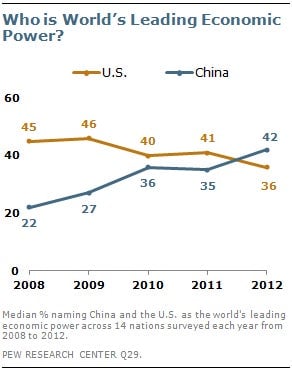
A Pew survey found 42% of respondents giving China the top spot, compared to 36% who named the US. Belief in China’s economic pre-eminence is especially strong in Europe, Brazil, Japan and Turkey.
2. Every country surveyed, except for the US, hates US drone strikes.
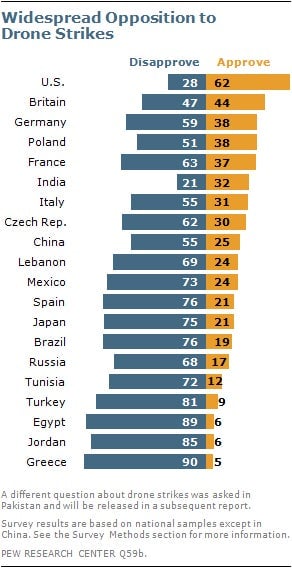
Selecting targets off a “kill list” to be blown up by flying missile platforms remotely piloted from trailers half a world away has been anything but a public-relations windfall for the US, says Pew. Of 20 countries in the poll, only America had a majority in favor of this brand of warfare. (Pew didn’t ask people if they disliked drones more than the regular brand of warfare, though.)
3. Capitalism is increasingly unpopular.
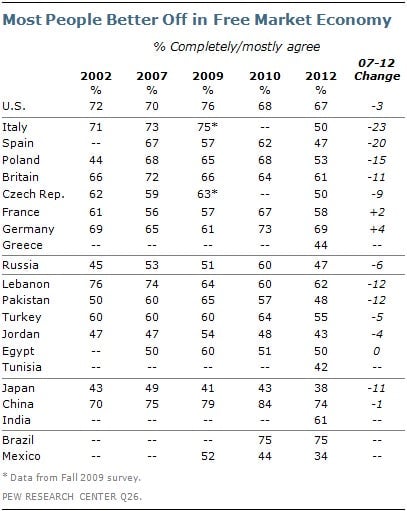
Countries hit hardest by the global economic crunch were most likely to report that fewer than half their population now thinks capitalism is a good idea, reports Pew.
4. Worldwide, 27% of adults work full-time for an employer.
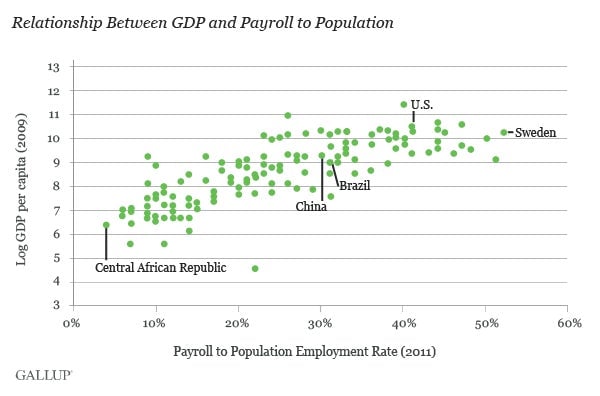
Gallup calls this the “payroll to population” ratio, and it excludes people who are self-employed, working part-time or out of the workforce entirely (e.g., retired or disabled). The firm says it has a higher correlation with GDP than conventional measures like unemployment rates.
5. Thirty-five percent of Iranians do not want nuclear weapons.
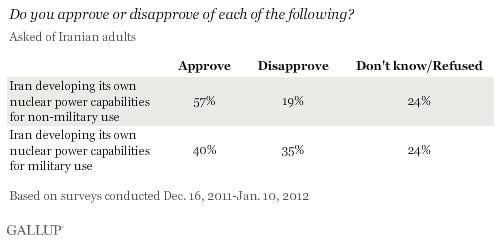
Iranians are, overall, in favor of civilian uses of nuclear power, says Gallup. But just over a third disapprove of using it for military purposes, and a quarter are undecided, leaving only 40% who clearly favor nukes.
6. Sub-Saharan Africa is a big untapped market for financial services.

Thirty-one percent of adults in the region transacted with distant parties in cash only, reports Gallup. That means handing the money to a friend, using informal couriers, or delivering it in person.
7. Despite the pay gap, women rate their quality of life about the same as men.
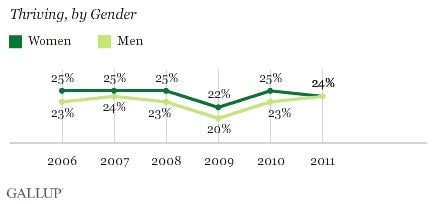
One in four women worldwide rate their quality of life high enough to rank as “thriving,” while 63% are “struggling” and 13% are “suffering”, says Gallup. These numbers are almost identical to self-reported values for men.
8. Greeks are the most pessimistic people on earth after American Republicans.
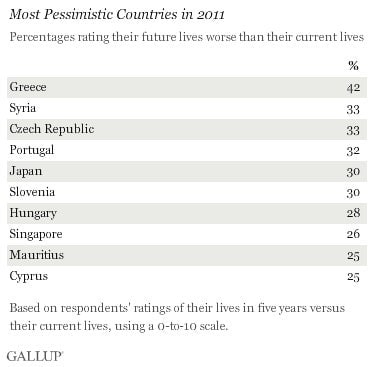
Forty-two percent of Greeks believe their lives will be worse in five years, says Gallup. Typically, humanity’s optimism bias means that we believe our lives will be better in five years, and this pattern is repeated across the globe. In only three other countries—Syria, Portugal and the Czech Republic—is that sentiment shared by more than a third of the populace. The only group more pessimistic about the future is US Republicans.